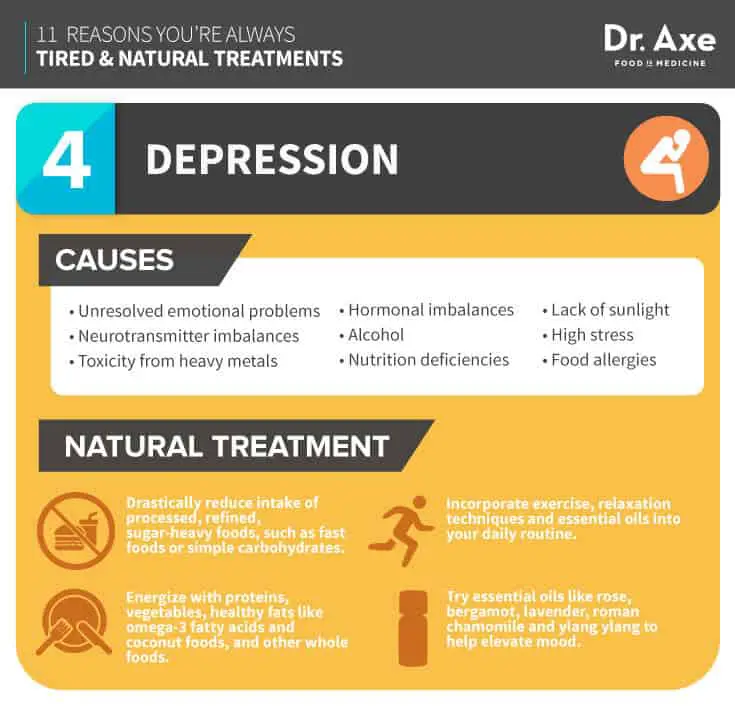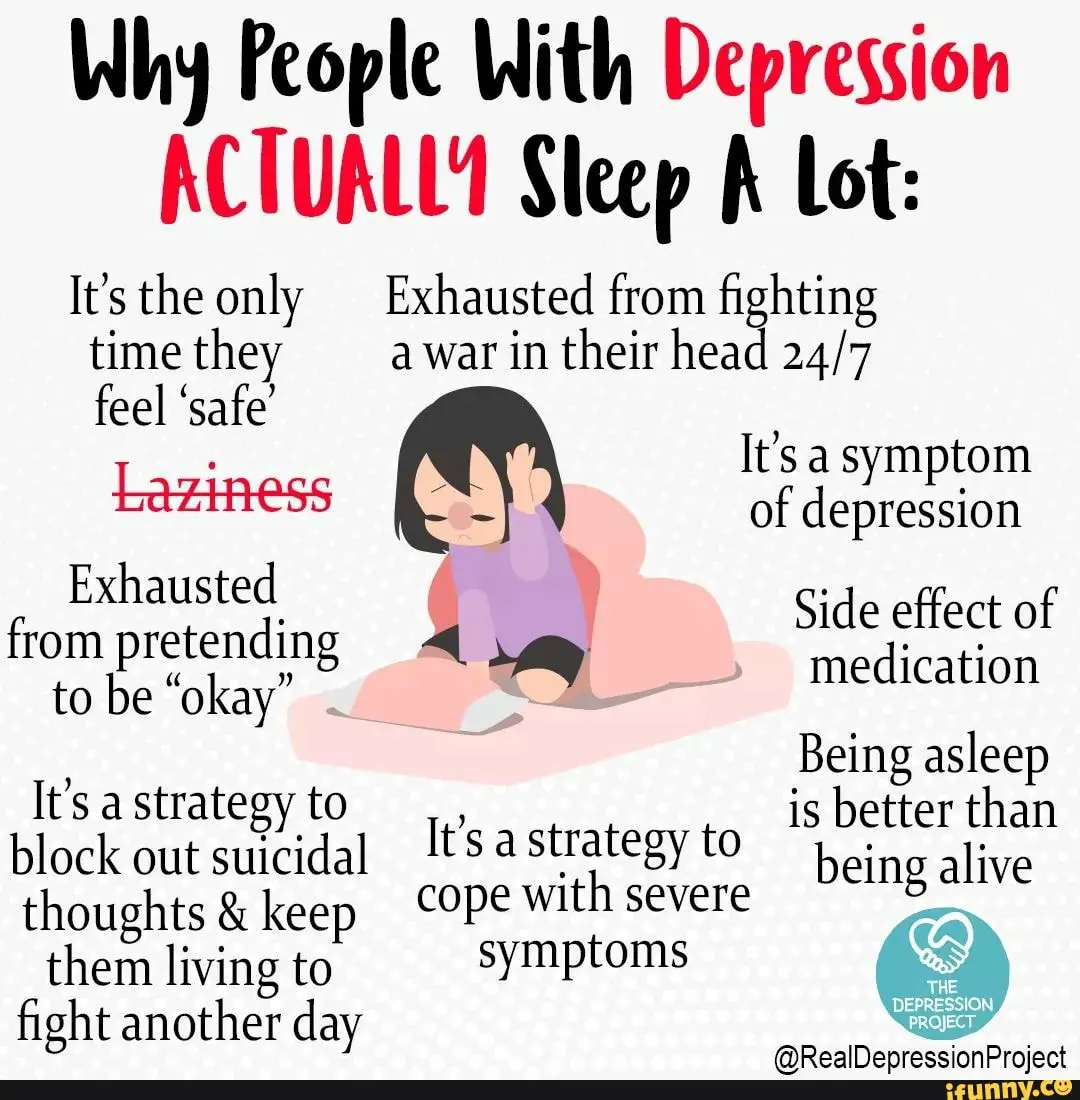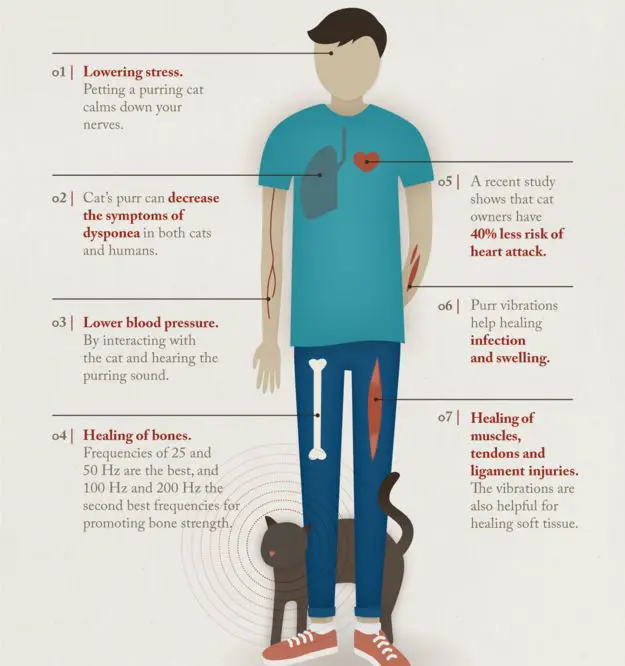Do Something You Enjoy
Depression can push you to give in to your fatigue. It may feel more powerful than preferred emotions.
Try to push back and do something you love something thats pleasurable or meaningful. It could be playing an instrument, painting, hiking, or biking.
The byproduct of engaging in meaningful activities can be a lift in your mood or energy, which can further motivate you to continue to engage in helpful activities that help with navigating symptoms.
Research suggests that walks in nature may improve depressive symptoms in people with clinical depression.
Time in natural spaces may improve mood and cognition, and lower the risk of mental health disorders. However, theres only limited research on the direct effect of nature on those with clinical depression.
Consider taking a walk at lunch among the trees or spending some time in your local park. Or plan a weekend hike. These activities can help you reconnect with nature and soak in some rays at the same time.
You Dont Sleep As Well
Depression may be disrupting your sleeping patterns in some way. About 80% of people with depression, for example, experience insomnia.
But its not just a lack of sleep that causes tiredness. Oversleeping, which is also a common symptom of depression, can cause similar feelings of fatigue over a period of time.
These kinds of sleep irregularities are among the biggest causes of fatigue in those who experience depression.
Troubleshoot Your Sleep Hygiene
Sleep hygiene is the term used to describe healthy sleep habits or behaviors you can practice that may help improve your ability to fall asleep and remain sleeping through the night.2 Following good sleep hygiene can improve the quality and quantity of sleep you get each night. It also plays a significant role in your physical and mental health.
To help improve your sleep hygiene, make sure to follow a nightly routine that allows time for relaxing activities. Finding ways to unwind before bed may allow you to quiet your mind, relax your body, and get a better night of sleep. Also, aim to get up and go to bed around the same time each day. Limit or eliminate electronics in the evening hours and shut down all screens at least 60 minutes before bed.
Also Check: Can Prostate Cancer Cause Fatigue
What Is Muscle Weakness A Sign Of
Muscle weakness is a very common complaint but there is a huge range of possible causes. People feel tiredness or reduced strength in their muscles.
Are you suffering from muscle weakness? Well, you might think its a symptom of your anxiety. Well, anxiety is one of the common causes of muscle weakness.
Nervousness or being afraid can cause your body to feel weak and tired. Daily psychological stress can also cause your body muscles to weaken and eventually lead to muscle loss.
Muscle weakness can be a sign of lack of exercise or aging. Muscle injury or pregnancy can also lead to muscle weakness.
There are many medical causes for muscle weakness. Chronic diseases such as diabetes, cardiovascular diseases can also eventually lead to muscle weakness. Other possible causes of muscle weakness include stroke, cancer, depression, fibromyalgia, and multiple sclerosis.
Muscle weakness at a very young age is a sign of either congenital muscle disorders or malnutrition.
If you feel fatigued or tired or you feel like your body has become very weak, its best to discuss your symptoms with your doctor.
Cause Of Polymyalgia Rheumatica

Polymyalgia rheumatica produces inflammation and swelling in the larger joints of the body, such as the shoulders and hips, and in the tissues around these joints. The inflammation is due to the immune system attacking the membranes lining the joint , but the reason for this is unknown. Genetics and environmental factors are believed to play a role.
Also Check: Drugs Used For Fatigue In Ms
Know That Today Isnt Indicative Of Tomorrow
Internal emotions and thoughts can change from day to day. Tracking experiences through journaling or keeping a mood diary can help to remember this.
If you were unsuccessful at getting out of bed or accomplishing your goals today, remember that you havent lost tomorrows opportunity to try again.
Give yourself the grace to accept that while some days will be difficult, some days will also be less difficult. Try to look forward to tomorrows fresh start.
Immunomodulatory Effects Of Antidepressant And Anti
Changes in the levels of immune markers have also been associated with the response to antidepressant therapies and found helpful in predicting treatment efficacy . In mice treated with LPS, serotonin reuptake inhibitor and serotoninnorepinephrine reuptake inhibitor administration lead to decreased serum levels of TNF and increased levels of IL-10 . In the repeated social stress model, treatment with tricyclic antidepressant decreased microglial expression of IL-6 mRNA both in vivo and following ex vivo stimulation, where TNF and IL-1 mRNA levels were also reduced . In vitro studies using animal macrophages have also confirmed similar immunosuppressive effects where the decrease in IL-6 and increase in IL-10 that follows treatment with amitriptyline, fluoxetine, and mianserin, suggests that such effects may be mediated by an inhibition of the nuclear factor kappa-light-chain-enhancer of activated B cells pathway . On the other hand, Munzer et al. found that treatment in vitro of whole blood cultures with SSRIs and mirtazapine, a tetracyclic antidepressant , had the opposite effect on the stimulated production of cytokines, with an increase in inflammatory markers including IL-1, IL-6, and TNF.
Table 1. Efficacy prediction and immunomodulatory effect of therapies.
You May Like: Hot Flashes Nausea Dizziness Fatigue Stomach Pain
Physical Versus Mental Exhaustion
If youve ever left the gym feeling exhausted but exhilarated, youve felt the difference between mental and physical exhaustion. Physical fatigue, like mental exhaustion, comes from prolonged stress but from stress on the body. This could be due to not getting enough sleep, an illness, or other physical strain.
Recommended Reading: Does Arthritis Cause Fatigue And Tiredness
What To Expect At Your Providers Office
There is no laboratory test for chronic fatigue syndrome. But your health care provider may use tests to rule out other illnesses. Your provider will go over your symptoms, check your medical history, and do a physical examination.
If you have CFS, your provider may prescribe drugs to treat your symptoms, or suggest herbs, vitamins, or dietary changes to help you. Get plenty of rest, exercise regularly, and learn to pace yourself. Often this combination of treatments will help you get better.
If the usual treatments do not work, your provider may check for other conditions that can cause symptoms similar to those of CFS.
Recommended Reading: High Waisted Army Fatigue Pants
Don’t Miss: Do Brain Tumors Cause Fatigue
How To Tell If You Are Depressed Or Just Tired
With both depression and fatigue, symptoms include low energy, low motivation, and anhedonia, or a loss of interest in pleasurable activities, Dimitriu says.
One distinguishing factor can be the desire to engage in activities people who have fatigue wish to do things, but lack energy, whereas people with depression have lower interest in activities, he says.
“Another important consideration is the duration of the low mood and if it improves with sleep,” Dimitriu says. A single good night’s sleep can improve a tired person’s mood, he notes.
But depression-related fatigue permeates every facet of a person’s life, says Ricke. The effect is felt:
- Physically: Everyday tasks eating, showering, getting dressed, and so on may become difficult. “The body can feel heavy, slow, and stiff due to depression,” Ricke says.
- Cognitively: Due to depression, you may experience “difficulty sustaining focus, concentrating, and processing information,” Ricke says. Of course, lack of sleep can have a similar cognitive impact, making it challenging to concentrate.
- Emotionally: Here is where the effects may be most profound. “Fatigue makes it more difficult to weed through the already confusing thoughts and feelings that are part of depression,” Ricke says. Forming emotional connections with friends, family, and the people around you may be more challenging when you’re fatigued, she says. And that, in turn, “can perpetuate feelings of aloneness and hopelessness,” Ricke says.
Dehydration And Inadequate Nutrition
Staying hydrated and getting proper nutrition is important for keeping your energy levels up. Research shows that a lack of fluid intake is associated with increased sleeplessness, fatigue, and irritability.
Not getting enough calories in your diet can also leave you feeling tired all the time, as can eating too many refined carbohydrates or not getting enough protein. Allergies to foods such as wheat, peanuts, or dairy may also contribute to tiredness.
Also Check: Extreme Fatigue Muscle Weakness Joint Pain
Recommended Reading: How To Overcome Compassion Fatigue
How To Deal With Depression And Fatigue
Depression fatigue is an exhaustion like no other. Its all-encompassing and is almost as if your entire body is fighting hard to sleep no matter what time of day it is or what you are supposed to be doing. If you have depression, chances are high that you will experience this fatigue. Over 90 percent of people with major depression have depression fatigue .
Rest assured, you have the ability to begin to regain your energy starting now. You dont have to wait for your depression to be gone. And you just might discover that you improve both fatigue and depression as you follow the tips below.
What Are The Signs Of Depression

While most of us think of the emotional funk associated with depression, it is often the physical symptoms that first alert us something is wrong, one of those being deep fatigue. When the symptoms persist most of the time for at least two weeks there is a good chance that it is a depressive disorder at the root of the symptoms.
According to the diagnostic criteria stated in the DSM-5, symptoms of depression include:
- Low mood, sadness, feelings of hopelessness or despair
- Slowed motor movements and cognitive functioning
- Changes in appetite, leading to sudden weight gain or loss
- Changes in sleep patterns, insomnia or hypersomnia
- Feelings of shame, worthlessness, or guilt
- Difficulty concentrating or making decisions
- Loss of interest in activities once enjoyed
- Recurrent thoughts of death or suicide
Read Also: How Do You Know If You Have Adrenal Fatigue
Fatigue In Daily Life Primary Care And Depression
Fatigue is a common complaint, not only from medical and psychiatric patients but also in the community. In the mid 20th century, a study seeking cancer-predicting signs interviewed over one million people in the US and found that 45.7 percent of women and 33.0 percent of men reported fatigue.2 National mental health surveys in several countries agree on its high prevalence rate. The 1984 Epidemiological Catchment Area study of the National Institutes of Health reflected a current fatigue prevalence of 6.7 percent and a lifetime prevalence of 24.4 percent 3 in a study of the Australian Bureau of Statistics, 13.29 percent reported fatigue 4 in a survey conducted in Great Britain by the Office of Population Censuses and Surveys, fatigue was the most common neurotic symptom with a prevalence of 27 percent.5 Most of these people associate their fatigue with a psychological component. In a British study of over 15,000 people in the community, almost 60 percent attributed their fatigue to psychosocial or psychological causes.6
Fatigue is also a common complaint in primary care. Studies in primary care in North America and Europe show that 10 to 20 percent of men and 10 to 30 percent of women report significant fatigue.79 The World Health Organization Multinational Primary Care Study, which was conducted in industrialized and underdeveloped countries, shows a weighted prevalence of eight percent for substantial unexplained fatigue vs. 1.7 percent for CFS.10
Are You Depressed Or Just Tired
With both depression and fatigue, symptoms include low energy, low motivation, and anhedonia, or a loss of interest in pleasurable activities. One distinguishing factor can be the desire to engage in activities people who have fatigue wish to do things, but lack energy, whereas people with depression have lower interest in activities. Its also important to consider the duration of the low mood and if it improves with sleep. A single good night’s sleep can improve a tired person’s mood, but depression-related fatigue permeates every facet of a person’s life.
Physically with depression-related fatigue, everyday tasks eating, showering, getting dressed, and so on may become difficult. The body can even feel heavy, slow, and stiff due to depression. Focus also becomes extremely difficult, with an inability to sustain concentration or process information. A lack of sleep can have a similar cognitive impact, but again, a few nights of good sleep will make the brain fog lift with fatigue unrelated to depression.
How does depression affect the brain? Fatigue, caused by depression, makes it more difficult to untangle the already confusing thoughts and feelings that are part of depression. Forming emotional connections with friends, family, and the people around you may be more challenging when you’re fatigued, and that can perpetuate feelings of loneliness and hopelessness. Again, rest should alleviate these symptoms, but with depression it may not.
Also Check: What Does Ms Fatigue Feel Like
What Are My Options
Since depression is at the core of your depression fatigue, its important to look into ways that you might want to treat your mental health above anything else.
There are many options, and each type of treatment can offer a different approach in helping you to deal with the challenges that come as a result of your feelings of depression.
Here are two main treatment options to consider:
Take The Bold Step And Choose Bold Health For Depression Treatment In San Diego
You have choices when it comes to depression treatment in San Diego. But choosing BOLD Health is one of the best decisions you can make.
Living with depression and fatigue is a challenge you shouldnt have to go through alone. Whether you choose our IOP in San Diego, individual therapy, or group therapy, we promise to walk beside you every step of the way, no matter how long it takes.
Contact us for more information so you can get back to living your best life faster. Contact Us
Don’t Miss: What Causes Fatigue In Menopause
Dr Fava How Often Do We Observe Symptoms Of Fatigue In Mdd
Dr. Fava: We see prominent symptoms of fatigue in the majority of patients with depression. In fact, fatigue is one of the most prevalent presenting symptoms of MDD, the second most prominent residual symptom of MDD, and is often associated with impaired concentration, irritability, and reduced productivity.13 Further, up to one-third of MDD patients who have achieved remission or response stiH continue to experience some symptoms of fatigue.1,2 In one recent study, more than 90 percent of patients with MDD had severe fatigue despite the fact that more than 80 percent of these patients were already taking antidepressant medications.4 In this study of 66 patients with MDD, 81.5 percent were taking antidepressant medications: 48.2 percent were taking selective serotonin reuptake inhibitors and 33.3 percent were taking serotonin norepinephrine reuptake inhibitors .
Eating Well For Mental Health
Consuming fewer processed foods can lead to better brain and emotional health.
From a young age, were taught that eating well helps us look and feel our physical best. What were not always told is that good nutrition significantly affects our mental health, too. A healthy, well-balanced diet can help us think clearly and feel more alert. It can also improve concentration and attention span.
Conversely, an inadequate diet can lead to fatigue, impaired decision-making, and can slow down reaction time. In fact, a poor diet can actually aggravate, and may even lead to, stress and depression.
One of the biggest health impairments is societys reliance on processed foods. These foods are high in flours and sugar and train the brain to crave more of them, rather than nutrient-rich foods such as fruits and vegetables.
A lot of the processed foods we eat are highly addictive and stimulate the dopamine centers in our brain, which are associated with pleasure and reward. In order to stop craving unhealthy foods, youve got to stop eating those foods. You actually start to change the physiology in the brain when you pull added sugars and refined carbohydrates from your diet.
Don’t Miss: Village Naturals Chronic Pain And Fatigue Body Wash
Depression Versus Lifestyle Fatigue
In my post The Keys to Understanding High-Functioning Depression, I note that high-functioning depression can be hard to spot. Unlike major depressive episodes, high-functioning depression is low-level, chronic, and doesnt have a clear trigger.
“Lifestyle fatigue,” however, does have obvious triggers and is more likely the result of feeling stuck in a rut rather than a predisposition for depression.
Behavioral Changes And Self

In addition to talk therapy, medication, or the combination of these interventions, behavioral changes such as establishing a healthier diet and exercise routine can help combat symptoms of depression . Strategies that also help improve self-care include the following mindfulness-based interventions include :
- Mindfulness-based group meetings
- Day- or week-long mindfulness retreats
- Mindfulness meditation
- Daily audio-guided mindfulness practice at home
- Stress adaptation through daily mindful practices
- Mindfulness home exercises
by Dr. Griffith | Oct 14, 2022 | Depression |
IN THIS ARTICLE
Whats the Link Between Depression and Fatigue?
Stress
How to Cope with Depression Fatigue
Therapy
Medication
Behavioral Changes and Self-Care
Furthermore, clinicians may not always recognize low energy levels, fatigue, or the reduced ability to concentrate as symptoms of depression because these issues are also associated with other psychiatric and medical disorders.
Gaining a better understanding of the link between depression and fatigue can help facilitate an accurate diagnosis and direct the treatment plan. This article discusses depression fatigue and beneficial management approaches that target this issue.
Recommended Reading: Madewell Griff Tapered Fatigue Pants